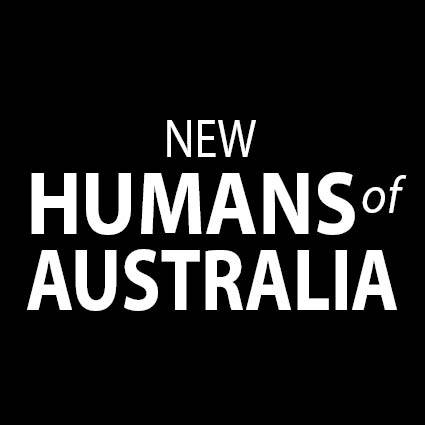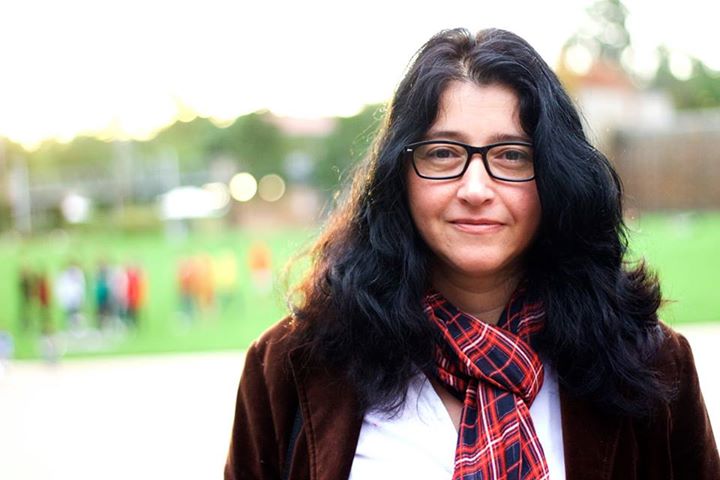(9/9) From that day, I started my political activities outside of Syria. I was a member of the Opposition, and became very active in human rights and helping the Syrian refugees there. I also spoke about what the Syrian people had suffered to many Arabic media channels, to many politicians, and to the UN. And I was a member of the delegation in the Geneva negotiations, responsible for human rights. However, after the first year, the revolution became an army revolution, which was against my principles, although I understood why it happened. I still supported the desire of the people to change the government, but I did not support the armed forces. So even though I was a member of the Opposition, it was clear to everyone that I was democratic and that I believed in freedom.
All this time, I was still being threatened by the regime, and there were also other groups that were against me, like Daesh (ISIS). So I still felt unsafe, even in Jordan. The regime also kept up their smear campaign about me. In the end, I couldn’t handle it anymore. And I was afraid for my children. They were very smart in school and they wanted a future, but they were growing up stateless. And I was afraid they would be harmed by those groups. I needed a safe place to give them a chance, and to give myself a chance to start again. Also, after the failure of the Geneva negotiations, I felt that the whole process was useless. All the countries around the world were interfering and it had become very complicated. So what was I doing? Nothing.
Eventually, I asked to seek asylum and the UN gave me the right to come to Australia as a refugee with my family and my sister’s family, who had followed me to Jordan. I had a lot of choices, because I had a very clear and strong file, but I wanted to come to Australia for many reasons – because it’s a peaceful country, because we spoke English, and because it’s not really involved in the Syrian situation. And I chose Brisbane because I wanted to start in a calm place. I started working, and at the same time studying Counselling. Now I’m working in an organisation called Access, supporting refugees. When I help people, I don’t care about their political opinion, or their religion, or their country. For me, this is a humanitarian issue.
I’m also still doing my activism here. It’s different now, though. Now I am only speaking about the Syrian refugees, and trying to support them by telling people about our culture. I have many things to work on here, to make Australians really aware of what is happening in Syria, because there is a lot of misunderstanding.
I really appreciate that Australia opened the door to Syrian refugees to come here. Still, this is a really big country and I feel it could take more people. For example, Lebanon has more than 2 000 0000 refugees and they are a tiny country.
Syria’s civilisation is thousands of years old. For 50 years, we were suffering from a dictatorial regime, but we are like all other people around the world – we deserve to be free.
Rima
Syria
Arrived 2014
This is the ninth of nine posts telling the story of Syrian activist, Rima Flihan.
If you would like to become a supporter of the New Humans of Australia project, please visit: www.patreon.com/nicolagray
#storiesnotstereotypes #refugees #migrants #migration #Syria #Syrian #Australia #refugeevoices


Welcome to Australia Rima.
May you and your families have a peaceful and fulfilling life here.
Thanks to all patrons who have signed up this week! 🙂 If you would like to become a supporter of the New Humans of Australia project, please visit: http://www.patreon.com/nicolagray
What a story – what courage and commitment! Thank you for sharing Rima.
What an amazing story. Such a courageous and passionate woman. It really does make you realise how lucky we are to live in a democratic country
What a story, very inspiring! Welcome to Australia Rima & thank you for sharing Nicola
Thank you Rima! Your courage and conviction are so inspirational ! Welcome to Australia x
What an amazing story. I hope, like you, that more Syrian refugees are settled here.
It is such a shame that the people who need to be educated the most about refugees and why they need to flee the country they love, don’t have the intelligence or compassion to follow or read pages like this. Or watch Four Corners or even just the channel 9 news. If we can just each share one of these amazing stories out there we might be able to change just one opinion. Hopefully that chain will keep going and going so more ignorant closed minds can be opened up to what is going on outside of this country.
Wonderful story,good luck for the future,you will be a great asset to Australia ,and the world,with the work you do,and the the example you set!
Wow what an incredible journey story and remarkable human being you are !!!
Welcome aroma, thank you so much for sharing your story.
We should be ashamed that our government has not even settled half of the 12,000 they promised, a whole year after they made the promise.
What an incredible story. Thank you for sharing. I wish you well with your new work and the support you are giving to those in need. You are a strong voice that I hope many people get to hear.
Such a strong, inspirational woman; we can all learn from. I hope you get to see your homeland again one day. In the meantime, we appreciate the work you are doing in Australia.
We are lucky to have people of your conviction and strength choose Australia as your home
Oh Rima, what a powerful read. I am so in awe of the strengh of your courage. What you have achieved in your life is so awe inspiring. I am glad Australia has allowed you to find a place of sanctuary for yourself and your family. I weep for your beloved Syria and I pray you will one day have the freedom to return to your homeland. Australia welcomes you and celebrates having you here with us.
We are lucky to have Rima. Everyone fighting for universal human rights in the most challenging of circumstances should be held in the highest esteem, and Rima’s work is clearly indispensable.
ACCESS Inc is one of the most amazing organisations I have had the honour of working with and one day I would love to work for them myself. They really do support newly arrived refugees more than the minimum funding requirements, and in turn support them to reach their full potential here. You are an absolute asset to their organisation, as well as to Australia. I am glad you chose Brisbane and one day I’d love to cross paths with you.
I really thank everyone and New human of Australia for publishing my story
I also thank Australia and all Australians who are welcoming refugees from all parts of the world
Wow just wow! So inspired by your strength and who said women can’t make a difference!!!!
Rima Flihan, let me know what I could do for your cause from Melbourne, salam ????
Yes, I am with everyone else – Welcome to Australia. Thank you Rima for telling your story and wanting to educate those who need it most ????
Wow Rima, your story makes me feel so sad. I wish the darkness that has engulfed Syria would just stop. I wish all humans would live with kindness and compassion. Bless you and everyone else who has suffered under this regime, and also those forced to participate unwillingly in the darkness. Thankyou for sharing your story and educating me (I don’t watch the news as I find it too depressing). Thankyou to New Humans of Australia for providing this platform.
Thanks Rima for sharing your story it’s heart-wrenching and inspiring. I agree we could be taking more refugees! I hope you find peace and happiness in your life in Briabane ❤
Wow. What a story. What a journey! Thanks Rima for sharing it and Nicola for capturing it. It’s obviously still so fresh in her mind. I hope your children are now safe but grow up to be as brave and courageous as you. X